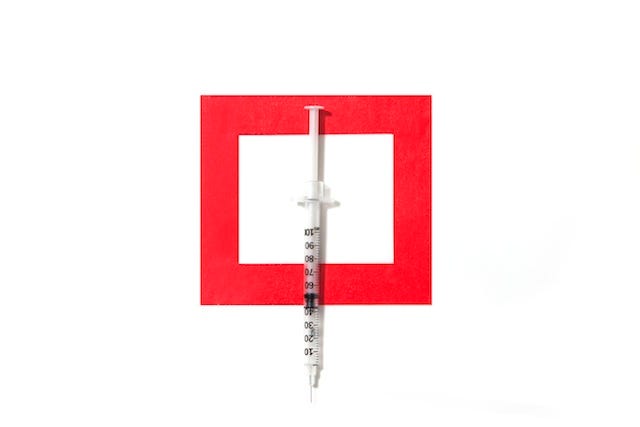 Photographed by Jessica Nash.
Photographed by Jessica Nash.But, what even is a flu shot?
Well, my inquisitive friend, a flu shot is a vaccine usually given in the arm. It's an injection that contains tiny amounts of different virus strains, which cause your body to develop antibodies to fight them. This takes about two weeks, and then your body will be ready to protect itself against those viruses should you come in contact with them in the future. There are different types of flu shots for different flu types, doses, and age groups. And, no, you won't get the flu from getting the vaccine, because the shot is now made with inactivated virus cells.
But, why do I need one?
This one's pretty obvious: You would have the benefit of being protected against getting a variety of different flu strains. It's quick, it's mostly painless, and, as a preventive measure, it's often covered by insurance. Even if you've been lucky enough to avoid the flu in previous years, there's no guarantee that will happen this year because the viruses change so quickly. And, for the same reason, that shot from last year won't be effective this time around. That said, there are legitimate reasons to not get a flu shot, such as having allergies to ingredients in the shot.
But, what about everyone else?
So glad you asked! Of course, the flu shot will help keep you from getting sick, but it's not just about you. The flu can develop into other potentially deadly conditions (such as pneumonia and bronchitis). And, these can be especially serious for young children and older adults, as well as those with asthma and a multitude of other conditions. Even if you're not in one of these groups, you probably know someone who is and you don't want to be the one who gave them the flu. There's also a little thing called herd immunity, which shows that everyone is safer (even those who can't get the vaccine) when a key portion of the population does get vaccinated. So, if you take the plunge, you could be helping to protect someone who would, but can't.






